- Home
- Jack London
The Call of the Wild, White Fang, and Other Stories Page 2
The Call of the Wild, White Fang, and Other Stories Read online
Page 2
The key to London’s effectiveness is to be found in his complete absorption in the world he evokes. The author is in and committed to his creations to a degree very nearly unparalleled in the composition of fiction. The resulting go-for-broke, event-intoxicated, headlong wild-Irish prose-fury completely overrides a great many stylistic lapses and crudities that would ordinarily cause readers to smile. As Orwell notes, “the texture of the writing is poor, the phrases are worn and obvious, and the dialogue is erratic.”
True, but it is nonetheless also true that London has at his best the ability to involve the reader in his story so thoroughly that nothing matters but what happens; in this sense he is basic indeed. His primary concern is action, with no pause to allow the savoring of verbal nuances or subtleties of insight. “La vérité, c‘est dans la nuance,” said Flaubert. London would have left that notion behind in the dog blood crystallizing on the ice floe, the eddying plume of a miner’s frozen breath. His style is in presenting what is, and that only. As a writer London is at his most compelling in “presentational immediacy”; the more the passage relates to the nerves and feelings of the body, the more effective it is.As he turned to go on, he spat speculatively. There was a sharp, explosive crackle that startled him. He spat again. And again, in the air, before it could fall to the snow, the spittle crackled. He knew that at fifty below spittle crackled on the snow, but this spittle had crackled in the air.
He is an artist of violent action, exemplifying what the American poet Allen Tate meant when he said: “I think of my poems as commentaries on those human situations from which there is no escape.” Once caught in London’s swirling, desperate, life-and-death violence, the reader has no escape either, for it is a vision of exceptional and crucial vitality. London’s most characteristic tales have the graphic power of the best cinema, and I for one hope that the film medium has not exhausted such possibilities as the latest adaptations assayed seem to encourage. Be that as it may, the quintessential Jack London is in the on-rushing compulsiveness of his northern stories. Few men have more convincingly examined the connection between the creative powers of the individual writer and the unconscious drive to breed and to survive, found in the natural world.
—James Dickey
A Note on the Text
The text of this edition follows the texts of the first book editions of “Bâtard,” published in The Faith of Men and Other Stories by the Macmillan Company in April 1904; of The Call of the Wild, published by the Macmillan Company in July 1903; of “Love of Life,” published in Love of Life and Other Stories by the Macmillan Company in September 1907; and of White Fang, published by the Macmillan Company in September 1906. Jack London tended not to revise what he had first written for magazine publication, but he relied a great deal on the typing and editing of his second wife, Charmian Kittredge London, and on George Brett, his editor at the Macmillan Company. Brett actually bought The Call of the Wild outright for two thousand dollars because Jack London wanted to buy an old sloop for sailing. The editor recognized its potential and supervised it through the press. It made London’s international reputation, as Brett promised that it would.
Very few corrections have been made in this edition, and only when London’s use of archaisms or inversion makes the text unintelligible to the modern reader. Similarly, there have been very few changes in spelling or punctuation, for London was a master at the rhythms and halts of his prose style. As the discriminating H. L. Mencken wrote of him, “No other popular writer of his time did any better writing than you will find in The Call of the Wild.... Here, indeed, are all the elements of sound fiction: clear thinking, a sense of character, the dramatic instinct, and, above all, the adept putting together of words—words charming and slyly significant, words arranged, in a French phrase, for the respiration and the ear.”
BTARD
Bâtard was a devil. This was recognized throughout the Northland. “Hell’s Spawn” he was called by many men, but his master, Black Leclère, chose for him the shameful name “Bâtard.” Now Black Leclère was also a devil, and the twain were well matched. There is a saying that when two devils come together, hell is to pay. This is to be expected, and this certainly was to be expected when Bâtard and Black Leclère came together. The first time they met, Bâtard was a part-grown puppy, lean and hungry, with bitter eyes; and they met with a snap and snarl, and wicked looks, for Leclère’s upper lip had a wolfish way of lifting and showing the white, cruel teeth. And it lifted then, and his eyes glinted viciously, as he reached for Bâtard and dragged him out from the squirming litter. It was certain that they divined each other, for on the instant Bâtard had buried his puppy fangs in Leclère’s hand, and Leclère, thumb and finger, was coolly choking his young life out of him.
“Sacredam,” the Frenchman said softly, flirting the quick blood from his bitten hand and gazing down on the little puppy choking and gasping in the snow.
Leclère turned to John Hamlin, storekeeper of the Sixty Mile Post. “Dat fo‘ w’at Ah lak heem. ‘Ow moch, eh, you, M’sieu‘? ’Ow moch? Ah buy heem, now; Ah buy heem queek.”
And because he hated him with an exceeding bitter hate, Leclère bought Bâtard and gave him his shameful name. And for five years the twain adventured across the Northland, from St. Michael’s and the Yukon delta to the head-reaches of the Pelly and even so far as the Peace River, Athabasca, and the Great Slave. And they acquired a reputation for uncompromising wickedness, the like of which never before attached itself to man and dog.
Bâtard did not know his father,—hence his name, —but, as John Hamlin knew, his father was a great gray timber wolf. But the mother of Bâtard, as he dimly remembered her, was snarling, bickering, obscene, husky, full-fronted and heavy-chested, with a malign eye, a cat-like grip on life, and a genius for trickery and evil. There was neither faith nor trust in her. Her treachery alone could be relied upon, and her wild-wood amours attested her general depravity. Much of evil and much of strength were there in these, Bâtard’s progenitors, and, bone and flesh of their bone and flesh, he had inherited it all. And then came Black Leclère, to lay his heavy hand on the bit of pulsating puppy life, to press and prod and mould till it became a big bristling beast, acute in knavery, overspilling with hate, sinister, malignant, diabolical. With a proper master Bâtard might have made an ordinary, fairly efficient sled-dog. He never got the chance: Leclère but confirmed him in his congenital iniquity.
The history of Bâtard and Leclère is a history of war—of five cruel, relentless years, of which their first meeting is fit summary. To begin with, it was Leclère’s fault, for he hated with understanding and intelligence, while the long-legged, ungainly puppy hated only blindly, instinctively, without reason or method. At first there were no refinements of cruelty (these were to come later), but simple beatings and crude brutalities. In one of these Bâtard had an ear injured. He never regained control of the riven muscles, and ever after the ear drooped limply down to keep keen the memory of his tormentor. And he never forgot.
His puppyhood was a period of foolish rebellion. He was always worsted, but he fought back because it was his nature to fight back. And he was unconquerable. Yelping shrilly from the pain of lash and club, he none the less contrived always to throw in the defiant snarl, the bitter vindictive menace of his soul which fetched without fail more blows and beatings. But his was his mother’s tenacious grip on life. Nothing could kill him. He flourished under misfortune, grew fat with famine, and out of his terrible struggle for life developed a preternatural intelligence. His were the stealth and cunning of the husky, his mother, and the fierceness and valor of the wolf, his father.
Possibly it was because of his father that he never wailed. His puppy yelps passed with his lanky legs, so that he became grim and taciturn, quick to strike, slow to warn. He answered curse with snarl, and blow with snap, grinning the while his implacable hatred; but never again, under the extremest agony, did Leclère bring from him the cry of fear nor of pain. This unconquerableness b
ut fanned Leclère’s wrath and stirred him to greater deviltries.
Did Leclère give Bâtard half a fish and to his mates whole ones, Bâtard went forth to rob other dogs of their fish. Also he robbed caches and expressed himself in a thousand rogueries, till he became a terror to all dogs and masters of dogs. Did Leclère beat Bâtard and fondle Babette,—Babette who was not half the worker he was,—why Bâtard threw her down in the snow and broke her hind leg in his heavy jaws, so that Leclère was forced to shoot her. Likewise, in bloody battles, Bâtard mastered all his team-mates, set them the law of trail and forage, and made them live to the law he set.
In five years he heard but one kind word, received but one soft stroke of a hand, and then he did not know what manner of things they were. He leaped like the untamed thing he was, and his jaws were together in a flash. It was the missionary at Sunrise, a newcomer in the country, who spoke the kind word and gave the soft stroke of the hand. And for six months after, he wrote no letters home to the States, and the surgeon at McQuestion travelled two hundred miles on the ice to save him from blood-poisoning.
Men and dogs looked askance at Bâtard when he drifted into their camps and posts. The men greeted him with feet threateningly lifted for the kick, the dogs with bristling manes and bared fangs. Once a man did kick Bâtard, and Bâtard, with quick wolf snap, closed his jaws like a steel trap on the man’s calf and crunched down to the bone. Whereat the man was determined to have his life, only Black Leclère, with ominous eyes and naked hunting-knife, stepped in between. The killing of Bâtard—ah, sacredam, that was a pleasure Leclère reserved for himself. Some day it would happen, or else—bah! who was to know? Anyway, the problem would be solved.
For they had become problems to each other. The very breath each drew was a challenge and a menace to the other. Their hate bound them together as love could never bind. Leclère was bent on the coming of the day when Bâtard should wilt in spirit and cringe and whimper at his feet. And Bâtard—Leclère knew what was in Bâtard’s mind, and more than once had read it in Bâtard’s eyes. And so clearly had he read that, when Bâtard was at his back, he made it a point to glance often over his shoulder.
Men marvelled when Leclère refused large money for the dog. “Some day you will kill him and be out his price,” said John Hamlin once, when Bâtard lay panting in the snow where Leclère had kicked him, and no one knew whether his ribs were broken, and no one dared look to see.
“Dat,” said Leclère, dryly, “dat is my biz‘ness, M’sieu‘”
And the men marvelled that Bâtard did not run away. They did not understand. But Leclère understood. He was a man who lived much in the open, beyond the sound of human tongue, and he had learned the voices of wind and storm, the sigh of night, the whisper of dawn, the clash of day. In a dim way he could hear the green things growing, the running of the sap, the bursting of the bud. And he knew the subtle speech of the things that moved, of the rabbit in the snare, the moody raven beating the air with hollow wing, the baldface shuffling under the moon, the wolf like a gray shadow gliding betwixt the twilight and the dark. And to him Bâtard spoke clear and direct. Full well he understood why Bâtard did not run away, and he looked more often over his shoulder.
When in anger, Bâtard was not nice to look upon, and more than once he had leapt for Leclère’s throat, to be stretched quivering and senseless in the snow, by the butt of the ever ready dogwhip. And so Bâtard learned to bide his time. When he reached his full strength and prime of youth, he thought the time had come. He was broad-chested, powerfully-muscled, of far more than ordinary size, and his neck from head to shoulders was a mass of bristling hair—to all appearances a full-blooded wolf. Leclère was lying asleep in his furs when Bâtard deemed the time to be ripe. He crept upon him stealthily, head low to earth and lone ear laid back, with a feline softness of tread. Bâtard breathed gently, very gently, and not till he was close at hand did he raise his head. He paused for a moment and looked at the bronzed full throat, naked and knotty, and swelling to a deep steady pulse. The slaver dripped down his fangs and slid off his tongue at the sight, and in that moment he remembered his drooping ear, his uncounted blows and prodigious wrongs, and without a sound sprang on the sleeping man.
Leclère awoke to the pang of the fangs in his throat, and, perfect animal that he was, he awoke clear-headed and with full comprehension. He closed on Bâtard’s windpipe with both his hands, and rolled out of his furs to get his weight uppermost. But the thousands of Bâtard’s ancestors had clung at the throats of unnumbered moose and caribou and dragged them down, and the wisdom of those ancestors was his. When Leclère’s weight came on top of him, he drove his hind legs upward and in, and clawed down chest and abdomen, ripping and tearing through skin and muscle. And when he felt the man’s body wince above him and lift, he worried and shook at the man’s throat. His team-mates closed around in a snarling circle, and Bâtard, with failing breath and fading sense, knew that their jaws were hungry for him. But that did not matter—it was the man, the man above him, and he ripped and clawed, and shook and worried, to the last ounce of his strength. But Leclère choked him with both his hands, till Bâtard’s chest heaved and writhed for the air denied, and his eyes glazed and set, and his jaws slowly loosened, and his tongue protruded black and swollen.
“Eh? Bon, you devil!” Leclère gurgled, mouth and throat clogged with his own blood, as he shoved the dizzy dog from him.
And then Leclère cursed the other dogs off as they fell upon Bâtard. They drew back into a wider circle, squatting alertly on their haunches and licking their chops, the hair on every neck bristling and erect.
Bâtard recovered quickly, and at sound of Leclère’s voice, tottered to his feet and swayed weakly back and forth.
“A-h-ah! You beeg devil!” Leclère spluttered, “Ah fix you; Ah fix you plentee, by Gar!”
Bâtard, the air biting into his exhausted lungs like wine, flashed full into the man’s face, his jaws missing and coming together with a metallic clip. They rolled over and over on the snow, Leclère striking madly with his fists. Then they separated, face to face, and circled back and forth before each other. Leclère could have drawn his knife. His rifle was at his feet. But the beast in him was up and raging. He would do the thing with his hands—and his teeth. Bâtard sprang in, but Leclère knocked him over with a blow of the fist, fell upon him, and buried his teeth to the bone in the dog’s shoulder.
It was a primordial setting and a primordial scene, such as might have been in the savage youth of the world. An open space in a dark forest, a ring of grinning wolf-dogs, and in the centre two beasts, locked in combat, snapping and snarling, raging madly about, panting, sobbing, cursing, straining, wild with passion, in a fury of murder, ripping and tearing and clawing in elemental brutishness.
But Leclère caught Bâtard behind the ear with a blow from his fist, knocking him over, and, for the instant, stunning him. Then Leclère leaped upon him with his feet, and sprang up and down, striving to grind him into the earth. Both Bâtard’s hind legs were broken ere Leclère ceased that he might catch breath.
“A-a-ah! A-a-ah!” he screamed, incapable of speech, shaking his fist, through sheer impotence of throat and larynx.
But Bâtard was indomitable. He lay there in a helpless welter, his lip feebly lifting and writhing to the snarl he had not the strength to utter. Leclère kicked him, and the tired jaws closed on the ankle, but could not break the skin.
Then Leclère picked up the whip and proceeded almost to cut him to pieces, at each stroke of the lash crying: “Dis taim Ah break you! Eh? By Gar! Ah break you!”
In the end, exhausted, fainting from loss of blood, he crumpled up and fell by his victim, and when the wolf-dogs closed in to take their vengeance, with his last consciousness dragged his body on top of Bâtard to shield him from their fangs.
This occurred not far from Sunrise, and the missionary, opening the door to Leclère a few hours later, was surprised to note the absence of Bâtard from the te
am. Nor did his surprise lessen when Leclère threw back the robes from the sled, gathered Bâtard into his arms, and staggered across the threshold. It happened that the surgeon of McQuestion, who was something of a gadabout, was up on a gossip, and between them they proceeded to repair Leclère.
“Merci, non,” said he. “Do you fix firs’ de dog. To die? Non. Eet is not good. Becos’ heem Ah mus’ yet break. Dat fo‘ w’at he mus’ not die.”
The surgeon called it a marvel, the missionary a miracle, that Leclère pulled through at all; and so weakened was he, that in the spring the fever got him, and he went on his back again. Bâtard had been in even worse plight, but his grip on life prevailed, and the bones of his hind legs knit, and his organs righted themselves, during the several weeks he lay strapped to the floor. And by the time Leclère, finally convalescent, sallow and shaky, took the sun by the cabin door, Bâtard had reasserted his supremacy among his kind, and brought not only his own team-mates but the missionary’s dogs into subjection.

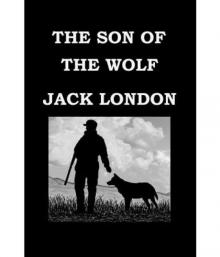 The Son of the Wolf
The Son of the Wolf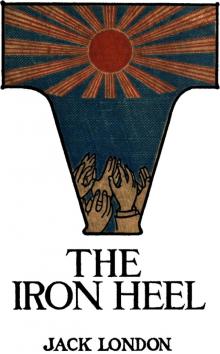 The Iron Heel
The Iron Heel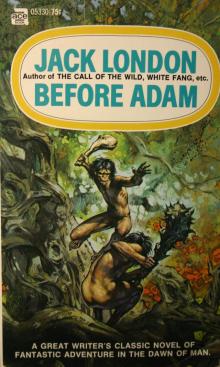 Before Adam
Before Adam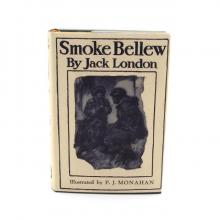 Smoke Bellew
Smoke Bellew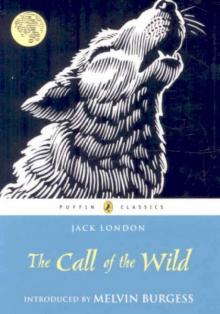 The Call of the Wild
The Call of the Wild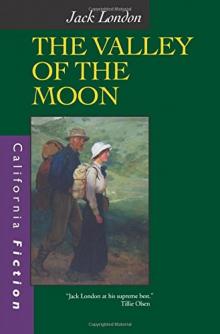 The Valley of the Moon Jack London
The Valley of the Moon Jack London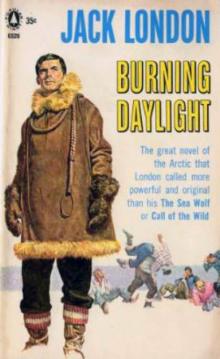 Burning Daylight
Burning Daylight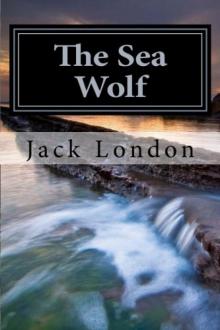 The Sea Wolf
The Sea Wolf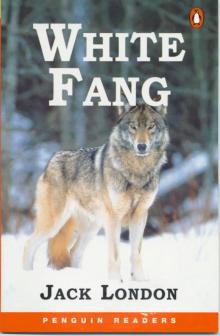 White Fang
White Fang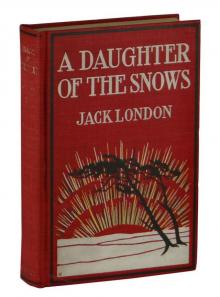 A Daughter of the Snows
A Daughter of the Snows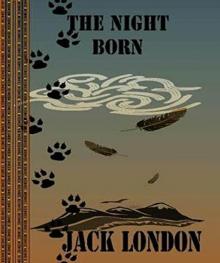 The Night-Born
The Night-Born A Son Of The Sun
A Son Of The Sun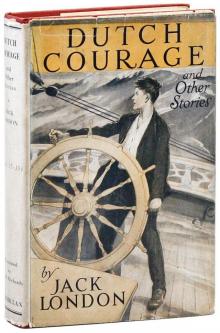 Dutch Courage and Other Stories
Dutch Courage and Other Stories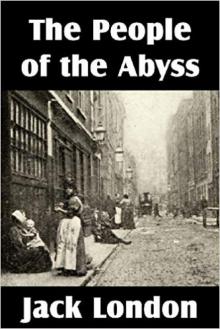 The People of the Abyss
The People of the Abyss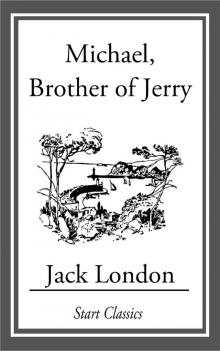 Michael, Brother of Jerry
Michael, Brother of Jerry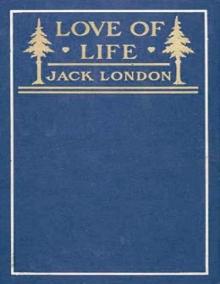 Love of Life, and Other Stories
Love of Life, and Other Stories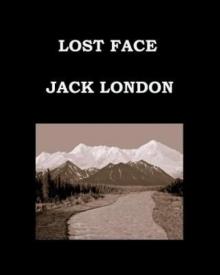 Lost Face
Lost Face The Road
The Road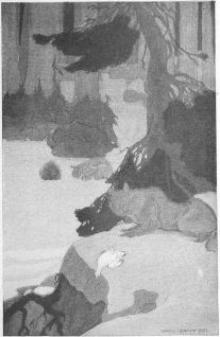 Love of Life
Love of Life The Turtles of Tasman
The Turtles of Tasman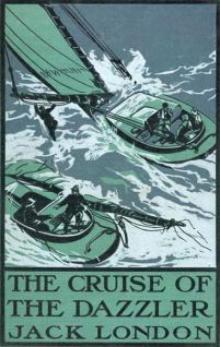 The Cruise of The Dazzler
The Cruise of The Dazzler The Heathen
The Heathen The Scab
The Scab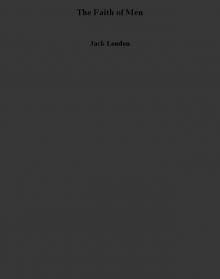 The Faith of Men
The Faith of Men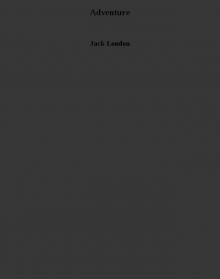 Adventure
Adventure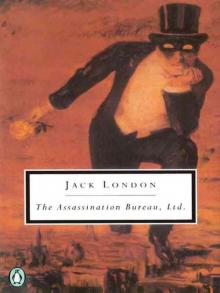 The Assassination Bureau, Ltd.
The Assassination Bureau, Ltd.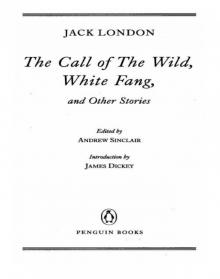 The Call of the Wild, White Fang, and Other Stories
The Call of the Wild, White Fang, and Other Stories The Call of the Wild and Selected Stories
The Call of the Wild and Selected Stories Jerry of the Islands
Jerry of the Islands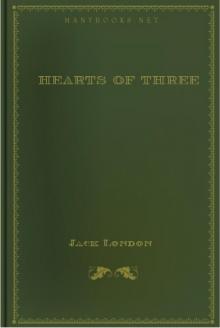 Hearts of Three
Hearts of Three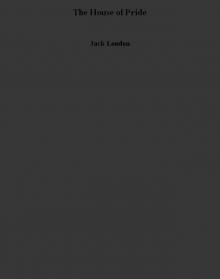 The House of Pride
The House of Pride Moon-Face and Other Stories
Moon-Face and Other Stories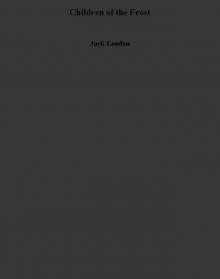 Children of the Frost
Children of the Frost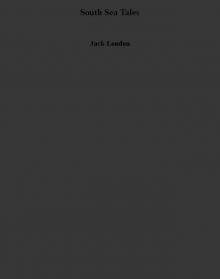 South Sea Tales
South Sea Tales The Strength of the Strong
The Strength of the Strong The Jacket (The Star-Rover)
The Jacket (The Star-Rover) The Little Lady of the Big House
The Little Lady of the Big House John Barleycorn
John Barleycorn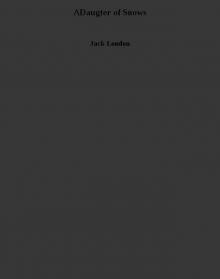 ADaugter of Snows
ADaugter of Snows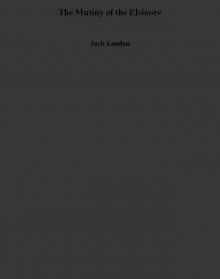 The Mutiny of the Elsinore
The Mutiny of the Elsinore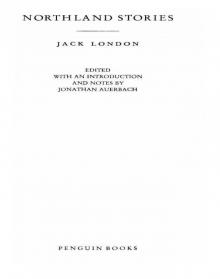 Northland Stories
Northland Stories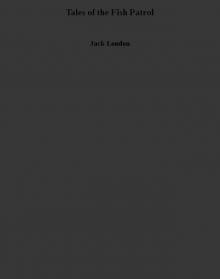 Tales of the Fish Patrol
Tales of the Fish Patrol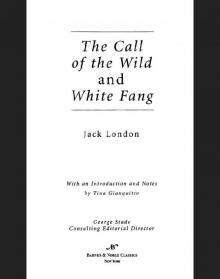 Call of the Wild and White Fang (Barnes & Noble Classics Series)
Call of the Wild and White Fang (Barnes & Noble Classics Series)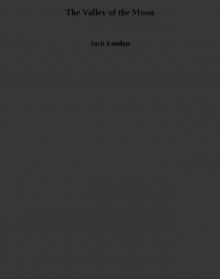 The Valley of the Moon
The Valley of the Moon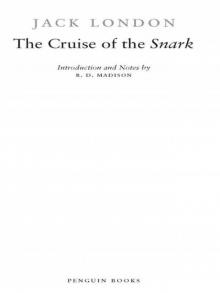 The Cruise of the Snark
The Cruise of the Snark The Game
The Game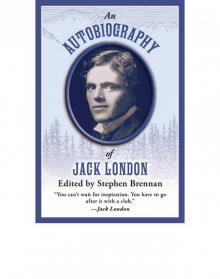 An Autobiography of Jack London
An Autobiography of Jack London